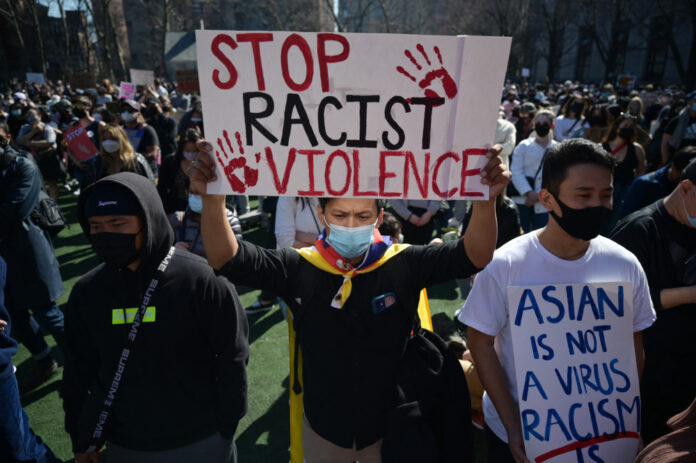Members and supporters of the Asian-American community attend a ‘rally against hate’ at Columbus Park in New York City March 21, 2021. — AFP pic
WASHINGTON, Nov 23 — The United States must overhaul its domestic legislative framework to ensure the rights of minorities, a UN-mandated expert said Monday, adding that measures taken by some states could undermine democracy.
Fernand de Varennes, the United Nations special rapporteur for minority rights, has just completed a two-week visit to the United States.
One of his main conclusions is that the United States needs a “New Deal,” he said in a video press conference.
“The US stands out among democracies for incomplete legislation for the recognition of human rights and for their protection.”
De Varennes said the United States has a “patchy tapestry of laws” created more than 60 years ago that are showing “signs of fatigue.”
Those gaps contribute to millions of Americans, especially minorities, “facing growing inequality, discrimination and even exclusion, facing dramatic increases in hate speech and hate crimes,” he said.
While de Varennes praised the US government’s efforts to combat hate speech targeting Asian Americans, he noted that African Americans remain “the most marginalised” community and are “by far the most likely to be denied the right to vote in federal and state elections, to be incarcerated, to be the targets of hate speech in social media and to be disproportionately excluded in a number of areas.”
He also pointed to “what could be described as an undermining of democracy with a phenomenal number of legislative measures in different parts of the country, which have the effect… of making the exercise of the right to vote more difficult for certain minorities.”
De Varennes, who will present his final report in a few months, also said that gerrymandering certain electoral districts, such as in Texas specifically, would decrease the weight of votes from minority communities.
He expressed concern that the United States continues to have different levels of citizenship, referring in particular to residents of US territory Puerto Rico, who do not have the right to vote in presidential elections. — AFP


